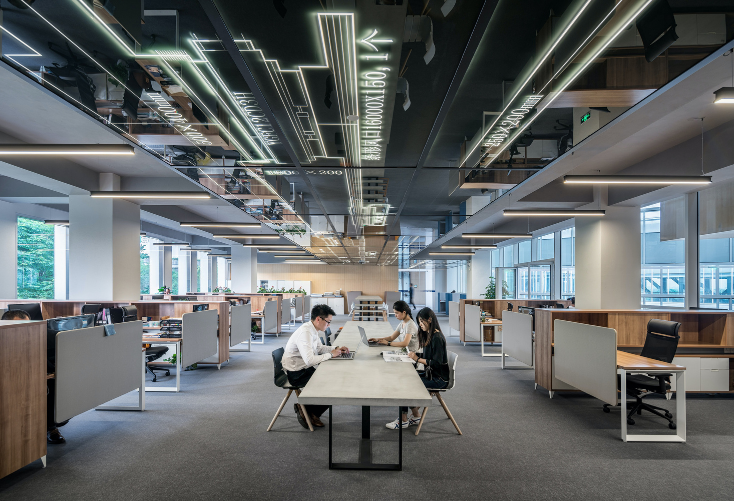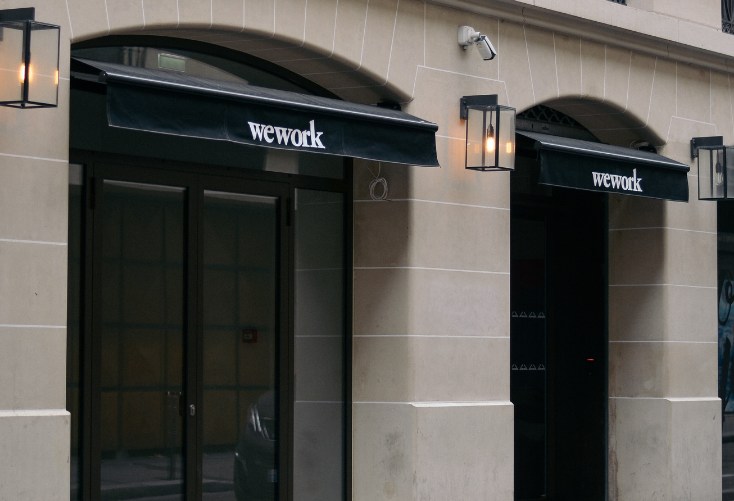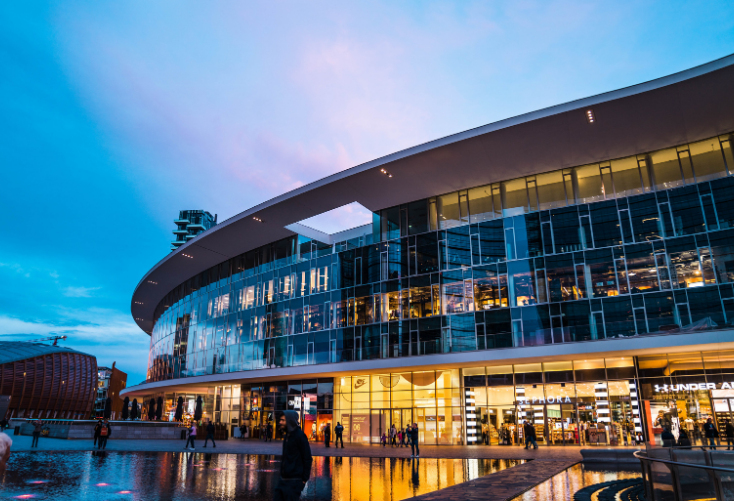Hand selected flexible workspace news from the most reliable sources to keep you ahead of the pack. We find all the latest news, so you don’t have to. Morning and afternoon updates. Stay in the know.
- Flexibility Is Here To Stay NEW
- The Future Of Workplace Design NEW
- How The Future Of Work Can Create Equal Opportunities NEW
- Businesses To Downsize On Office Space
- Coworking Leaders Are Optimistic About The Future
- Shopping Centers Could Be Home To Coworking Spaces
Flexibility Is Here To Stay
For years, research has indicated that the workforce would become generally more flexible, but the pandemic has accelerated this change quicker than any expert could have predicted.
With the pros and cons of remote working being argued for years now, the world’s largest work from home experiment has given us a clearer idea of what does and does not work for these arrangements. Business leaders have been hesitant to adopt any type of flexibility due to the misconception that it can decrease productivity. However, data reveals that it can improve productivity and the quality of work.
According to research from Oxford University and Citi, of the 483 occupations they studied, 113 of which employ 52% of the US workforce were able to be done remotely.
Additionally, University of Kent and University of Birmingham’s research, titled The Working from Home during COVID-19 Lockdown Project, found that 52% of parents and 66% of non-parents would want to continue working flexibly after the pandemic. Knowing this, it is apparent that flexibility will be key to all companies moving forward.
“Managers and employers are increasingly sensitive to the personal lives of their workers and how remote work fits into their wider lives,” said Sridhar Iyengar, Managing Director at workplace software company Zoho Europe. “Company culture really takes the human approach to how people are working and trying to fit work into their daily schedule, and at Zoho we have setup a helpline for employees to call, and a lot of problems people have come to us with have been common across the workforce.”

The Future Of Workplace Design
Although many companies have opted to continue remote working arrangements for the rest of the year, some are bringing their employees back into the office. But doing so requires major design changes to the workspace in order to accommodate physical distancing and other safety measures.
In recent years, business leaders have realized the importance of having the proper workspace design as it can have a direct impact on the employee experience and quality of work. For younger generations, they generally prefer a job that offers a culture that is community-driven and gives them a sense of purpose.
Open office designs have grown in popularity over the past few years, but as the COVID-19 pandemic continues to plague certain areas of the world, office layouts may become curated for individuals rather than large groups. This means installing partitions, standing screens and keeping work stations at a distance to keep workers safe.
Still, companies should also pay attention to other details that can make for a much more inspiring and innovative workplace. For instance, the color of the walls or incorporating natural elements can help create an ideal work environment.
Adding biophilic elements has also been found to have greatly improved the well-being of employees. Bringing the outdoors inside with plants and natural lighting has been found to not only inspire workers, but also improve the mental and physical health of employees.

How The Future Of Work Can Create Equal Opportunities
The idea of being successful has been redefined over the past few years. While it used to refer to our economic stability, it is now being measured by our autonomy, mastery and passion for what we do.
There are many ways to view work. When we are working for money without personal reward, work becomes commoditized, but when we love what we do, we become more satisfied.
The concept of work can be viewed in three ways: job work, which refers to doing work routinely for money; marginal work, which is supplemental work or gigs performed at random; and gift work, which is work we do for free like volunteering.
All of these types of working can fulfill certain needs for people. For instance, money is an obvious need, but gift work provides a sense of self-worth when contributing to something larger than yourself.
Humans naturally crave more satisfying tasks and our society has made it so that some are born into wealth on the backs of those who have little to no opportunity. People have the need to express themselves through work, but the lack of job supply hinders large portions of the population.
So how can the future of work be a place that provides equal opportunity for marginalized communities? For starters, flexibility in terms of location could open new doors for those living outside of major cities and may not have the ability or finances to move to expensive areas. This can allow companies to not only have a wider talent pool, but a much more diverse workforce as well.

Businesses To Downsize On Office Space
A new survey from Accumulate Capital has found that three-quarters of senior business decision makers believe that the pandemic will cause many UK businesses to downsize to smaller offices.
The data of 500 respondents also said they still value the office and will continue to emphasize the strengths of the office during this transition expected to happen over the next year.
The research reveals that 37% of respondents planned to move their business to a smaller commercial space in the next year. Additionally, half of the business decision makers said their preference for a commercial workspace has changed, with 58% saying they see remote working to become increasingly more common.
“The increase in remote working will likely see businesses look to smaller, more flexible workspaces,” said Paul Howells, CEO of Accumulate Capital. “The days when a company would own or rent an office with a desk in it for each and every member of staff are coming to an end – in reality, this trend was already taking shape, but the coronavirus crisis has greatly accelerated it.”

Coworking Leaders Are Optimistic About The Future
Although many have proclaimed the death of the office, WeWork Australia manager Balder Tol is optimistic about the future of the coworking industry. In fact, Tol believes that the pandemic has simply accelerated what analysts already predicted about the workplace.
After millions of workers were forced to transition to working from home for the majority of this year, businesses have reconsidered the need for office space.
“For me, the office isn’t dead, it’s being transformed,” said Tol. “We’re starting to see some of the pros and cons out of that forced switch, and we’re anticipating what our members want from us as a space-as-a-service organization.”
Tol added that the office space will still be necessary for growing a company’s culture, innovation and collaborative opportunities.
Although the coworking industry has taken a hit in the short-term, many operators are adapting to the evolving needs of their members in order to create a safe and healthy work environment.
Now, companies are seeking more flexible and agile workspaces that support varying needs of all workers. In short, the traditional 9 to 5, stationary desk model is what is dying.
Moving forward, Tol says that businesses need to have a better understanding about where and when their employees want to work. The future of a company’s success relies on strong communication lines between employers and workers.

Shopping Centers Could Be Home To Coworking Spaces
For years prior to the pandemic, shopping centers were facing massive closures as online retail reigns king. But now, as companies from all corners of the workforce are moving to remote working positions, malls have found new ways to fill in vacant space and boost revenue to surrounding businesses.
For instance, the Orange Park Mall in Florida adjusted its services to keep people safe, without sacrificing daily pleasures like drive-in movies, fitness classes and more.
Now, the mall has opened a new coworking space for professionals who need a convenient workspace on flexible terms. The space, called The Hub by The Nest Coworking, is set up in the middle of a hallway.
“A lot of businesses are closing down right now so we’re out here trying to do some marketing to keep our doors open,” said Antoinette Nea, founder of We Insure. “I’m hoping that it will help. Getting the word out that small businesses are still out here trying to do business in the community.”



 Dr. Gleb Tsipursky – The Office Whisperer
Dr. Gleb Tsipursky – The Office Whisperer Nirit Cohen – WorkFutures
Nirit Cohen – WorkFutures Angela Howard – Culture Expert
Angela Howard – Culture Expert Drew Jones – Design & Innovation
Drew Jones – Design & Innovation Jonathan Price – CRE & Flex Expert
Jonathan Price – CRE & Flex Expert












